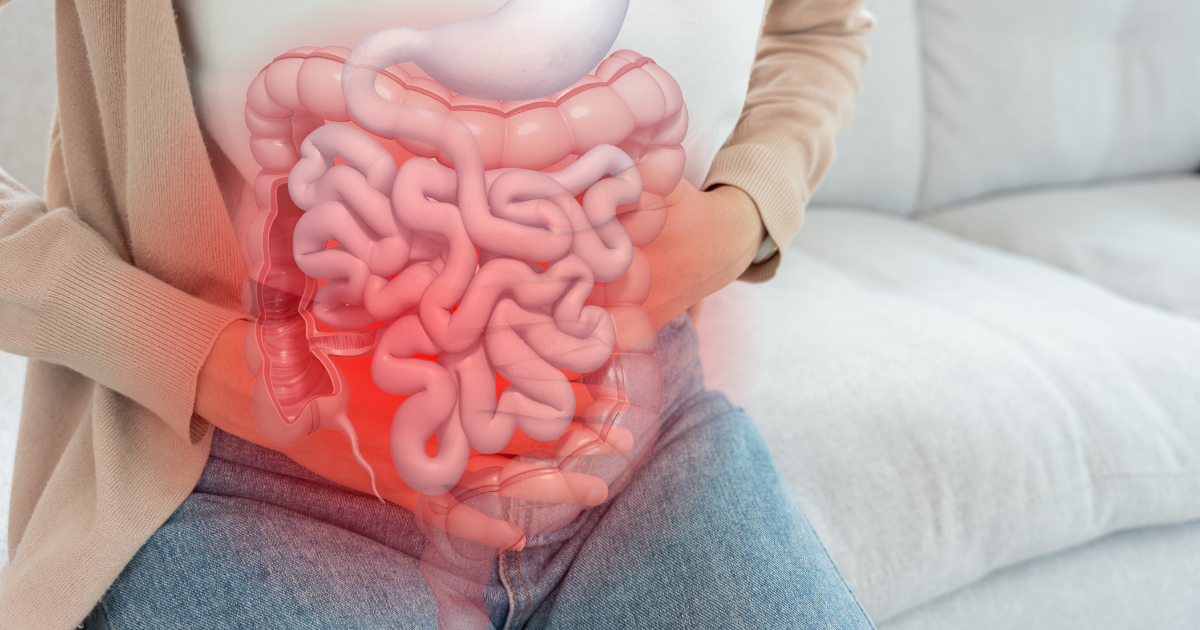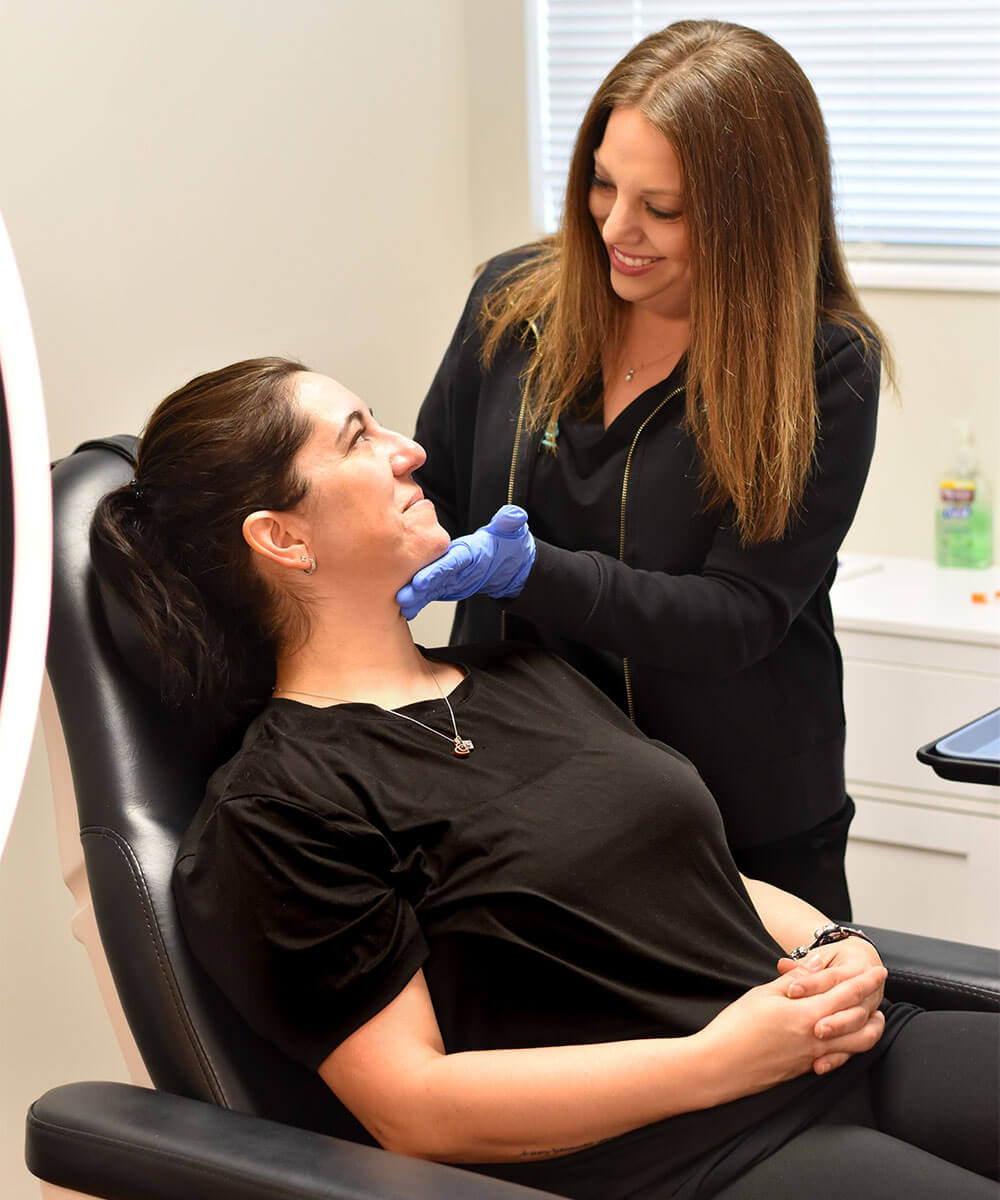
Written by Lauren Lund, APRN-CNP
Reviewed by Laurianne Scott, DO
LAST UPDATED: Nov 11, 2024 | 8 min read
If you are taking weight loss medications, such as GLP-1 receptor agonists (semaglutide or tirzepatide), you might be experiencing some unwanted side effects, one of the most common being constipation. Many people on these medications report changes in their digestive system, including difficulty with bowel movements. But don’t worry! Constipation can usually be managed with some simple strategies, and this blog post will walk you through the reasons behind it, how to treat it, how to prevent it in the future, and when to seek emergency care.
Why Does Constipation Happen on GLP-1 Medications?
GLP-1 receptor agonists are effective weight loss medications that work by mimicking a hormone your body naturally produces. They help regulate blood sugar, slow gastric emptying, and reduce appetite. While these effects are helpful for weight loss, they can also contribute to constipation.
- Slower Digestion: GLP-1 medications slow down how quickly food moves through your stomach and intestines. While this can lead to feeling fuller for longer, it can also make it harder for your digestive system to keep things moving, resulting in constipation.
- Changes in Fluid Balance: These medications can affect fluid balance in the body, which may result in drier stools.
- Decreased Appetite and Food Intake: If you’re eating less or changing your diet because of the medication, you may not be consuming enough fiber or liquids, which can also contribute to constipation.
Risks of Untreated Constipation
While constipation might seem like a minor inconvenience, untreated or chronic constipation can lead to more serious health issues, including:
- Bowel Obstruction: Chronic constipation can cause a blockage in your intestines, leading to painful and potentially dangerous conditions. Learn more...
- Hemorrhoids: Straining during bowel movements can cause swollen veins in the rectum or anus, which can be uncomfortable and lead to bleeding. Learn more...
- Digestive Distress: Severe constipation can make you feel bloated, sluggish, and uncomfortable, which can interfere with your daily life and overall well-being.
- Impact on Weight Loss Goals: Constipation can sometimes contribute to bloating and discomfort, making it harder to feel good about your progress and continue with your weight loss journey.
How to Treat Constipation at Home
The good news is that constipation can often be managed at home. Here are some simple strategies to get things moving again:
- Increase Fiber Intake. Aim for 25-30 grams of fiber per day through a variety of fruits, vegetables, whole grains, and legumes. Fiber helps bulk up your stool and keeps things moving through your intestines.
- Stay Hydrated. Drink plenty of water throughout the day—aim for at least 8 cups of fluids daily. Water helps keep stool soft and makes it easier to pass. If you struggle to drink enough water, try adding a splash of lemon or cucumber for a refreshing twist.
- Regular Exercise. Engage in physical activity regularly, as it stimulates your digestive system. Even a short daily walk can help improve bowel movement frequency.
- Supplements. See our full list of supplement for constipation recommendations HERE
- Over-the-Counter Remedies. If natural remedies aren't enough, you may consider using over-the-counter products like stool softeners (e.g., docusate sodium) or mild laxatives (e.g., polyethylene glycol). Use these as a temporary measure and try to rely more on dietary changes and supplements for long-term relief.
How to Prevent Constipation
The best approach to managing constipation is through prevention. Here’s how to make sure your bowel movements stay regular and comfortable while on weight loss medications:
- Eat a Balanced, High-Fiber Diet. Fiber-rich foods like leafy greens, berries, whole grains, and legumes should be a part of every meal. If you find it hard to get enough fiber through food alone, consider a fiber supplement like psyllium husk (Metamucil) to support digestion.
- Exercise Regularly. Aim for at least 30 minutes of moderate exercise most days of the week. Exercise stimulates your digestive tract and can help prevent constipation.
- Consider Probiotics. Probiotics are beneficial bacteria that help balance your gut flora. They may improve digestion and prevent constipation by supporting a healthy gut. You can find probiotics in foods like yogurt, kefir, or fermented vegetables, or you can take a supplement.
- Monitor Fluid Intake. Drinking enough fluids is crucial. Aim for water, herbal teas, or broth-based soups. Avoid excessive caffeinated drinks, as they can contribute to dehydration.
- Listen to Your Body. When you feel the urge to go #2, don’t ignore it! Delaying bowel movements can make constipation worse.
When to Seek Urgent Medical Help or Go to the ER
In most cases, constipation can be managed at home with lifestyle changes. However, there are situations when you should seek urgent medical attention or go to the Emergency Room, particularly if you experience any of the following:
- Severe Abdominal Pain: If your stomach becomes swollen, distended, or if you experience sharp, persistent pain, it could indicate a more serious issue, such as a bowel obstruction.
- Bloody Stools or Rectal Bleeding: If you notice blood in your stool or have rectal bleeding, it’s important to get checked out by a healthcare provider right away.
- No Relief from Over-the-Counter Treatments: If constipation lasts for more than a week despite dietary changes and over-the-counter remedies, or if it’s severely impacting your quality of life, it’s time to talk to a doctor.
- Signs of Dehydration: Severe constipation can sometimes lead to dehydration. If you're feeling extremely thirsty, dizzy, or lightheaded, seek medical attention.
If your constipation becomes severe or you’re experiencing any concerning symptoms, don’t hesitate to contact your healthcare provider or visit the ER.
Get Started with MOBO Med Spa
If you’re struggling with weight loss or medication side effects, our team at MOBO Medical Spa, serving Ohio and West Virginia, is here to support you. We specialize in creating personalized treatment plans that work for you. Reach out today to schedule a consultation!







